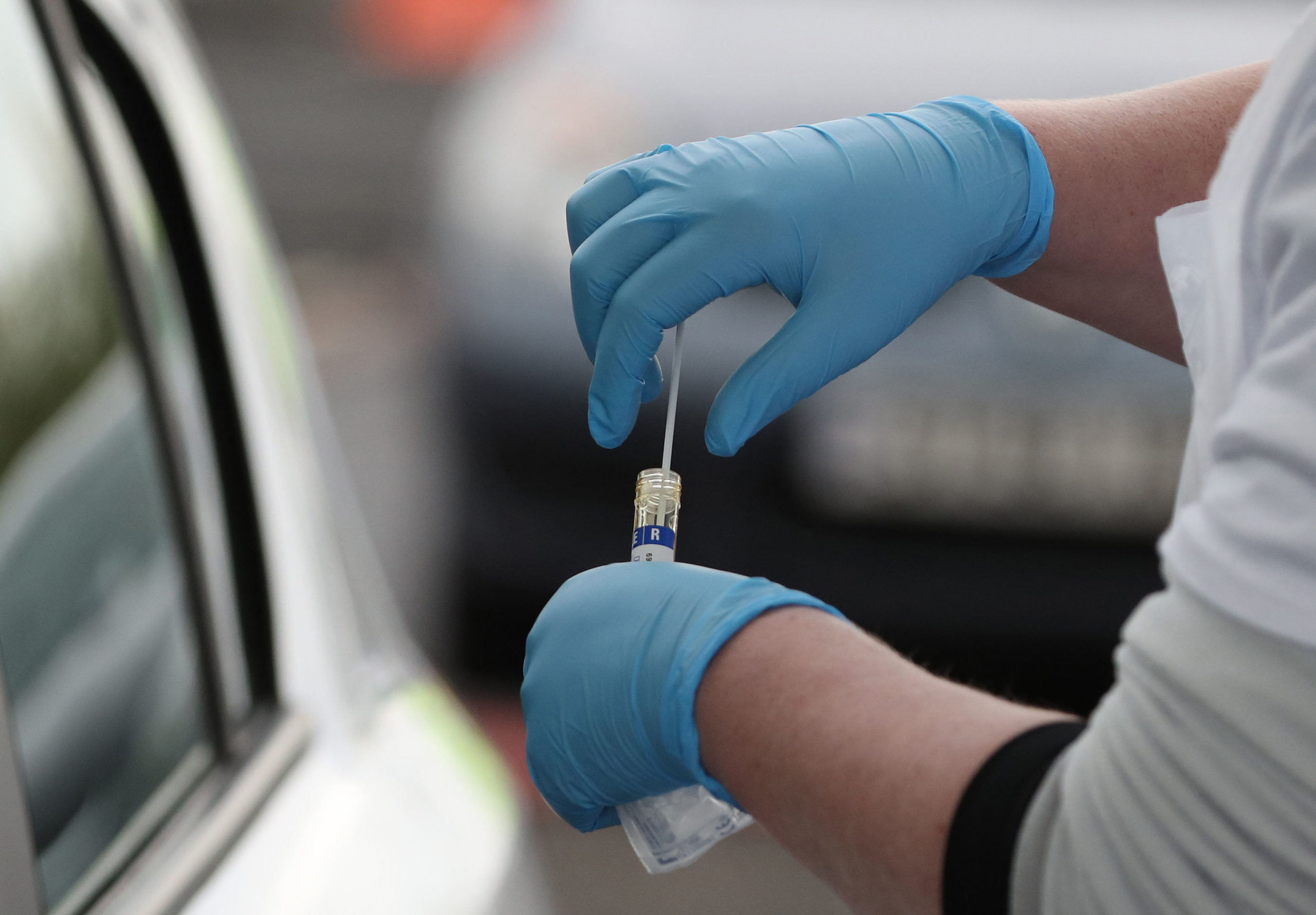UK in talks with Roche over ‘game-changer’ virus test

A medical worker holds a sample as she tests a key worker for the novel coronavirus Covid-19 at a drive-in testing center at Glasgow Airport on April 29, 2020, as the UK continues in lockdown to help curb the spread of the coronavirus. (Photo by Andrew Milligan / POOL / AFP)
LONDON — Britain on Thursday said it was in discussions with Swiss pharma giant Roche to mass purchase its coronavirus antibody test after scientists found it to be “100 percent” accurate, the government said Thursday.
“This test developed by Roche appears to be extremely reliable, it’s got the green light from testers,” health minister Edward Argar told the BBC on Thursday.
“We are currently in discussions with Roche about that. We are very keen to get that test on stream as swiftly as we can,” he added, calling it a potential “game-changer”.
The antibody tests detect whether someone has had coronavirus at any point in the past, meaning they are almost certainly immune, according to the current scientific consensus.
Britain has had more than 36,000 deaths in the outbreak — the second-worst in the world — but has partially lifted lockdown measures in England this week.
The government has been accused of putting workers’ lives at risk by easing restrictions while the daily death toll is still hovering around 500.
But ministers and scientists are banking on a reliable antibody test to give people the confidence to go back to work.
Scientists at Public Health England’s (PHE) research laboratory at Porton Down in southern England gave approval to the test last week after finding it 100 percent accurate.
The Daily Telegraph said Roche was ready to provide “hundreds of thousands of laboratory-based tests” to Britain’s health service each week.
A government source was quoted as saying: “We want to get our hands on as many of these as possible.”
The national coordinator of the UK Coronavirus Testing Programme, Professor John Newton confirmed PHE Porton Down evaluated the SARS-CoV-2 serology assay.
They concluded “it is a highly specific assay with specificity of 100 percent”, he added.
“This is a very positive development because such a highly specific antibody test is a very reliable marker of past infection,” Newton said.
“This, in turn, may indicate some immunity to future infection, although the extent to which the presence of antibodies indicates immunity remains unclear.”